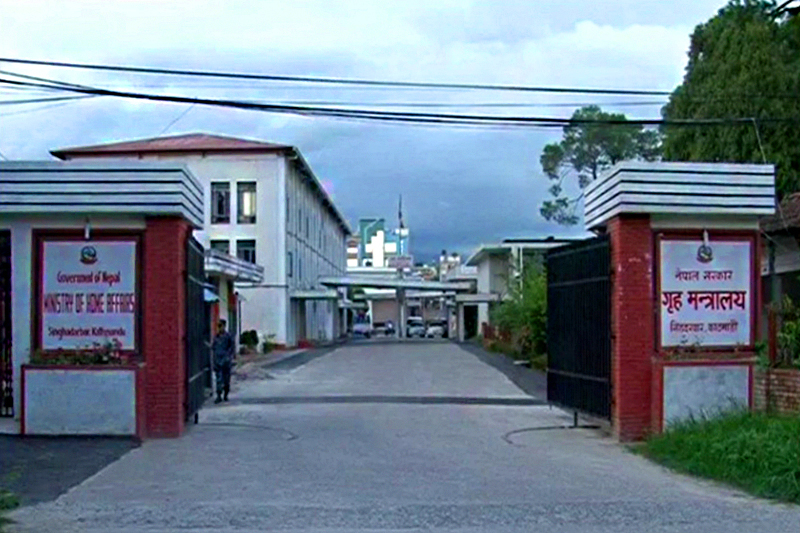Misuse of CCTVs made punishable
Kathmandu, February 14
The Ministry of Home Affairs has made an amendment to the ‘CCTV Installation and Operation Procedure’ which is expected to regulate the use and prevent misuse of surveillance cameras installed in public places, commercial and business hubs, private business, residential areas and on highways for crime control.
The procedure has classified the use of surveillance camera into three categories — public security purpose, commercial security purpose and private security purpose. Under the public security purpose, the concerned government agencies will instal the CCTVs in public places to control crimes, conduct evidence-based criminal investigation, ease traffic management and discourage traffic rule violation by utilising the CCTV as a psychological deterrent against any offence.
Any government or public agency which has installed CCTVs for security purpose should provide written information to the nearest police or the concerned District Administration Office within 15 days. The records of CCTV footage shall be maintained for at least three months and provided to Nepal Police and other government agencies as solicited for investigation.
The procedure requires banks and financial institutions, business malls, departmental stores, jewellers and cybercafes to instal CCTVs compulsorily.
Upon installation of the surveillance cameras, they have to provide information thereof to the nearest police office or DAO. The CCTV footage needs to be kept strictly confidential unless demanded by the police for crime investigation. No one would be allowed to use CCTV footage for business purpose through modification or any other means.
The procedure also prohibits the use of CCTV cameras to violate privacy and human rights of citizens, and installation of secret cameras in washrooms, changing rooms and bedrooms of hotels, restaurants and commercial buildings. “Business houses have to hire separate employees for monitoring the CCTVs,” it states. The same provisions will be applicable for CCTVs installed in houses for private purpose.
The district police office will collect the details of CCTVs installed in its working area and send the same to the concerned DAO. The DAO may depute an inspection and monitoring team to ascertain whether the organisations or persons operating the CCTVs have complied with this procedure.
“Anyone who installs and operates a CCTV contrary to this procedure will be liable to legal action under the Electronic Transactions Act,” it states.






